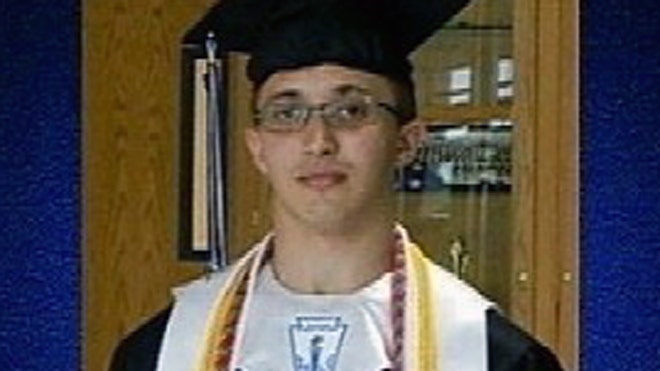During the last few years I have heard things from Leftists/Liberals which, quite simply, you wouldn't believe. And all primarily -- but not exclusively -- when they talk or write about Islam and/or Muslims.
Their level of defensiveness concerning Islam and the behavior of Muslims (as Muslims) is literally absolute. It is complete or 'unconditional'. This isn't in the least a surprise. In many respects it replicates the Leftist defense of all sorts of terrorist, violent, and insane groups and causes in the past.
Following one from all that, it's no surprise that we have standpoints like the following coming from the Left:
1a) Islam is the religion of peace.
1b) Winston Smith (from George Orwell's 1984) says: 'The Party says the earth is flat.'
2a) All criticism of Islam and Muslims is racist and fascist.
2b) Winston Smith also says: 'The Party says that ice is heavier than water.'
These Leftists/Liberals, in other words, have trained themselves not to understand or see any arguments which contradict what they already believe.
All this is partly -- or mainly -- because Leftists, specifically Trotskyists, put 'the Cause' first. What I mean by that is that saying and believing things which are way beyond plausibility or justification is acceptable to these people as long as it advances the cause. This can be manifested in the phrase -- used by Leftists themselves -- 'lying for justice'. That is, they believe that they can lie, or simply distort or exaggerate, if so doing benefits the cause. (This is very similar to Islamic taqiyya in which lying, dissimulation, etc. are absolutely acceptable in order to defend and/or advance Islam or Muslims.)
That cause is primarily the fight against racism and fascism.
Because Leftists/Liberals deem racism and fascism to be so bad (as most people do -- including most of the Right!), they deem lying, violence, cynical alliances, opportunism, etc. as acceptable. Part of the fight against racism and fascism includes accusing all their enemies and opponents of being 'racist'/'Islamophobic' and/or 'fascist'. That too furthers the fight against fascism and racism. Thus, although a small minority of Leftists/Liberals will know full well than many of their opponents aren't racists or fascists, fighting racism and fascism demands that all their enemies must be accused of being so because only that level of absolutism will successfully help the fight against such things. In other words, accusing all opponents of being 'racist' or 'fascist' helps the fight against racism and fascism; or so these people believe. (I believe it works against that fight.)
This fight against racism/Islamophobia and/or fascism (as well as the advancement of socialism or whatever) is so all-encompassing that part of that fight involves what Leftists/Liberals actually think to themselves about these issues. Just as Leftists/Liberals lie and distort when discussing racism, Islamophobia, or whatever when talking to others, so too will they often lie to themselves. In other words, Leftists/Liberals will often indulge in what is called 'Crimestop' (as found in George Orwell's 1984):
Crimestop means the faculty of stopping short, as though by instinct, at the threshold of any dangerous thought. It includes the power of not grasping analogies, of failing to perceive logical errors, of misunderstanding the simplest arguments if they are inimical to Ingsoc [English socialism], and of being bored or repelled by any train of thought which is capable of leading in a heretical direction. Crimestop, in short, means protective stupidity.Leftist members of the UK's Hope Not Hate, SWP-UAF, etc. will not only attempt to stop all others from saying -- and even thinking -- things which they disagree with, they will also stop themselves from thinking ideologically/politically incorrect things. Many Leftists, and virtually all Far Leftists, will stop themselves thinking anything heretical or unorthodox (vis-à-vis their chosen ideological positions or political group/party). And they do this so often and so systematically that this thought-stopping process soon becomes automatic and even instinctive. This process reveals itself when it comes to Leftists/Liberals defending Islamic misogyny, jihad, stoning, riots, sex-grooming, terrorism, ghettos, Shia blood rituals, polygamy, etc. (I've often heard Leftists defend all these things.) But of course Leftists/Liberals don't just indulge in Crimestop when it comes to thinking and talking about Islam and Muslims; they do it across the board. After all, Leftists, especially Trotskyists, believe that politics directly impinges on everything; not just on attitudes to Islam and Muslims. (At SWP-UAF conferences, for example, they offer you 'Marxist perspectives' on everything from opera to quantum mechanics!)
More specifically, Leftist/Liberal Crimestop will result in these people deliberately misunderstanding your analogies and metaphors. It will involve him or her focusing on irrelevant detail (e.g. the 'bad structure' of the article or post). They may even claim to become bored by an argument that goes against what they already believe. Basically, they will do anything to stop genuine debate -- after all, all their opponents are racists and/or fascists and therefore evil (though 'evil' is not a word which Leftists actually use).
It's also important to realize that not all Leftists are stupid in the traditional sense of that word (though many student novitiates of revolutionary Leftism are). It's more correct to say that they indulge in deliberate or willed stupidity. That is, just as many religious zealots or fundamentalists are often educated but still (deliberately) obtuse; so too are many Leftists/Liberals. This is not surprising because many Leftists, not as much so with Left-Liberals, are also fundamentalists and zealots. Indeed Leftism, especially Marxist Leftism, is basically a religion.
To sum all this up. It can be said that Leftists indulge in 'doublethink'. And if you realize this, you will no longer be surprised the next time a Leftist says or believes something 'which goes beyond the realms of credibility'. Or, as Winston Smith puts it, you will soon realize that most Leftists are obliged to 'develop a blind spot whenever a dangerous thought presents itself.'



